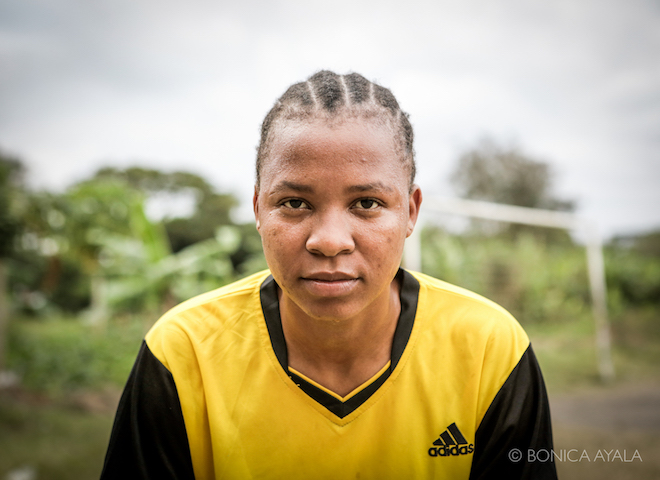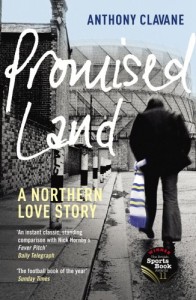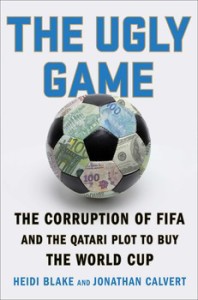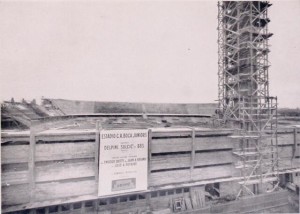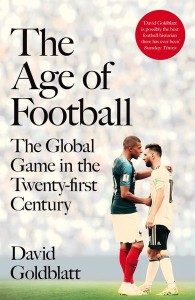 With Euros 2020 postponed until 2021 due to the COVID-19 pandemic, the Football Scholars Forum organized a five-part summer series with academic, journalist, and broadcaster David Goldblatt on his new book, The Age of Football: The Global Game in the Twenty-first Century [UK edition here / US edition here].
With Euros 2020 postponed until 2021 due to the COVID-19 pandemic, the Football Scholars Forum organized a five-part summer series with academic, journalist, and broadcaster David Goldblatt on his new book, The Age of Football: The Global Game in the Twenty-first Century [UK edition here / US edition here].
A longtime FSF member, Goldblatt is the award-winning author of several football books, including the highly acclaimed The Ball is Round: A Global History of Football, which FSF discussed here and here.
A record-setting 56 participants from five continents registered for the series. Each Tuesday 90-minute Zoom session focused on a different chapter (or chapters) in the 551-page book. Discussants opened each intellectual pick up game with a number of comments and questions. Given the book’s length and depth, this approach broke the conversation down into more digestible chunks and made it easier for individuals to contribute on topics of particular interest or expertise.
As the convenor of the series, I served as the first discussant on June 9 in the session on Africa. Danyel Reiche and Alex Galarza collaborated the following week on the Middle East and South America; then on June 23 Lindsay Krasnoff led on the 119-page chapter on Europe (read her comments here); on June 30 Andrew Guest was the discussant for the chapters on East Asia and North America/Central America/Caribbean; finally, on July 14, Simon Rofe and Matthew Pauly spearheaded the fifth and final session devoted to FIFA, Russia, and the 2018 World Cup.
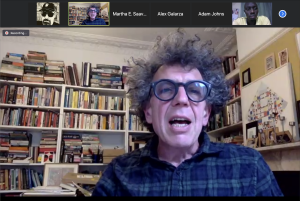 “It’s the hardest book I’ve ever written,” Goldblatt revealed. “A combination of Brexit and COVID kind of ate its public reception alive. That was quite hard to process,” he said. “This [series] has been a fabulous corrective to that. It means a lot to have you read it, to know that it held your attention, entertained you and maybe enlightened you along the way.”
“It’s the hardest book I’ve ever written,” Goldblatt revealed. “A combination of Brexit and COVID kind of ate its public reception alive. That was quite hard to process,” he said. “This [series] has been a fabulous corrective to that. It means a lot to have you read it, to know that it held your attention, entertained you and maybe enlightened you along the way.”
David Goldblatt’s extraordinary endurance, encyclopedic mind, grace and humor, com bined with the vital and sustained contributions of discussants and dozens of participants, made this series a truly extraordinary experience.
Listen to the audio recordings of each session below (personal/educational use only).
